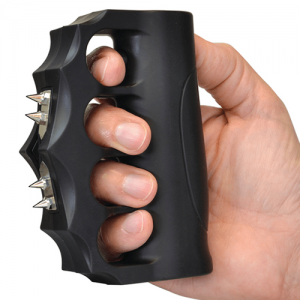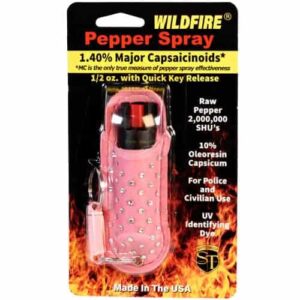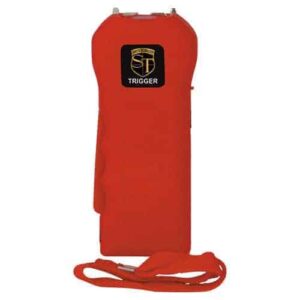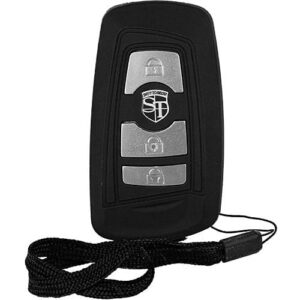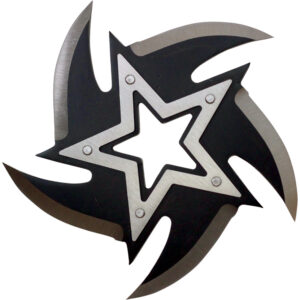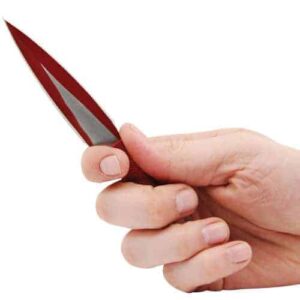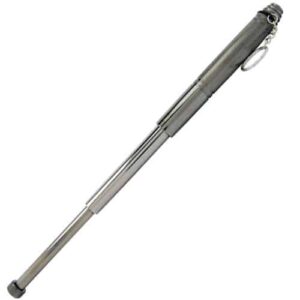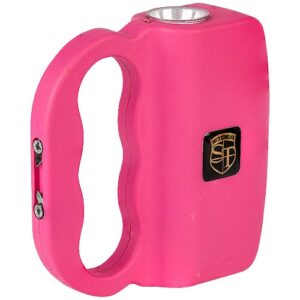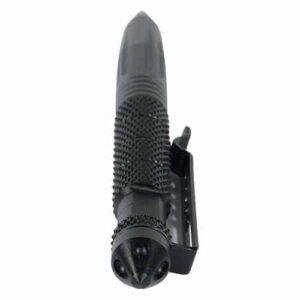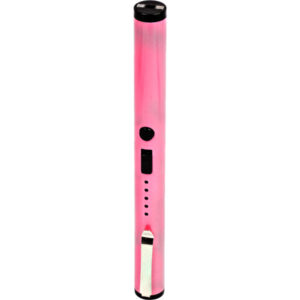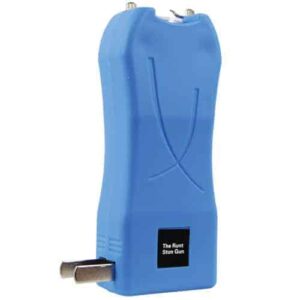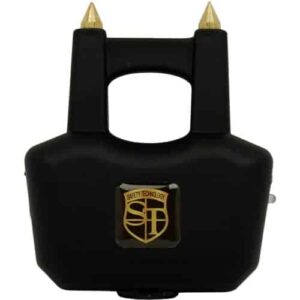You’re about to immerse yourself into the world of “Kubaton Legal”, an unexpected and exciting journey that opens doors to a comprehensive understanding of the legality status of the Kubaton. Through a fine mesh of solid evidence, expert opinions, and numerous examples, this article will explore everything from where it’s legal to carry these tools, how to use them properly, up to defense techniques advisable by law. It’s an informative oasis for anyone interested in laws pertaining to the use of daily items, like a Kubaton, ensuring you’re well-informed and always on the right side of the law.

Table of Contents
ToggleWhat is a Kubaton?
Definition
A kubaton, sometimes spelled as kubotan, is a small, handheld device mainly used for self-defense. It resembles a small stick, typically made of plastic or metal, and its design is targeted for ease of use, portability, and effectiveness. It got its name from its creator, Takayuki Kubota.
History
The impressive record of the kubaton starts with its inventor, a Japanese-American martial artist named Takayuki Kubota. Kobayashi conceived the device in the late 1970s, responding to requests for a self-defense tool that could be used by law enforcement agents in non-lethal situations. The kubaton rapidly grew in popularity and gained widespread usage not only among law enforcement but also by everyday people for personal protection.
Design and Features
The kubaton is usually designed to fit comfortably in the hand. It’s typically about 5.5 inches long and around half an inch thick—just the right size to grab without being clunky. Although they are simple in design, some kubatons may include additional features like keyring attachments, spikes, or blunt ends to increase their effectiveness.
Common Uses
Given their simplicity and convenience, kubatons are commonly used by a wide range of individuals. Apart from law enforcement agents and security personnel, it’s also used by people who have the need for a discreet and practical self-defense tool. Moreover, the kubaton is often employed in pressure point control techniques and can assist in the application of locks and holds.
Kubaton Legalities
Legal Status
The legality regarding kubatons varies widely by country and region. They’ve been found to be legal in many places, however, certain regions may limit their carry or use.
Restrictions
In places where kubatons are legal, there may still be restrictions on their respective forms. For instance, kubatons with spikes or ones that are disguised as innocuous objects could be under more stringent regulation.
Self-Defense
As the primary purpose of kubatons is typically self-defense, it’s critical to understand local self-defense laws and how they apply to the use of such tools. Misusing a kubaton, even out of self-defense, could potentially have legal repercussions.
Use in Other Countries
If you’re traveling internationally while carrying a kubaton, you’ll want to review the self-defense laws and regulations of your destination country. Some countries have total prohibitions on such devices, so be informed to avoid legal complications.
Laws and Regulations
Federal Laws
Federal laws largely do not regulate kubatons, but the availability and use of specific models might be restricted under certain circumstances.
State Laws
The legal status of kubatons can differ from state to state. While they’re legal to carry in many states, others have restrictions or prohibitions. Check your state laws to know where your jurisdiction stands.
Local Laws
Also, local laws and even city ordinances can impose additional restrictions on carrying or using kubatons, so it’s essential to be fully aware of your locality’s laws.
Airports and Federal Buildings
Even if kubatons are legal in your location, they’re probably not allowed in places like airports or federal buildings. Such places have specific security protocols that prohibit potential weapons.
Schools and College Campuses
Similar to airports and federal buildings, schools and college campuses often have rules against carrying potential weapons, including kubatons.
International Travel
International law significantly varies as regards personal defense tools like kubatons. Be sure to check the laws of the country or countries you’ll be visiting.
Self-Defense Considerations
Justification
The argument of self-defense for using a kubaton relies on the threat you were facing. It should be justifiable and proportional. Using a kubaton offensively could likely result in legal trouble.
Proportional Use of Force
Proportional use of force is essential in self-defense. It means the level of force you use to defend yourself shouldn’t exceed the threat you’re facing.
Training
To use a kubaton effectively and safely, you should consider getting some proper training. This training can help you understand how and when to use the kubaton and potential legal implications.
Alternative Self-Defense Tools
There are many alternative self-defense tools available, each with their own benefits and drawbacks. It’s vital to choose one that best fits your personal needs and local laws.

Potential Legal Consequences
Criminal Charges
Misusing a kubaton could result in criminal charges such as assault. Keep in mind that even if self-defense is a justified reason to use force, the force must be proportional to the threat.
Penalties
The penalties for misuse of a kubaton will vary by jurisdiction, but they could range from fines to jail time.
Legal Defense Options
In the event of legal trouble related to the use of a kubaton, you should consult a legal professional. They can help you understand your defense options and navigate the legal system.
Alternatives to Kubatons
Personal Alarms
Personal alarms can deter attackers and draw attention to your predicament, acting as an effective self-defense tool.
Pepper Spray
Pepper spray is a non-lethal tool that can incapacitate an attacker long enough for you to escape.
Tactical Flashlights
Tactical flashlights can momentarily blind attackers, giving you the opportunity to flee or to use other self-defense means.
Whistles
A whistle can alert others nearby to your position and scare off potential attackers.
Self-Defense Training
Self-defense training can equip you with practical techniques to protect yourself without the need for items such as kubatons.

Related Weapons and Tools
Tactical Pens
Tactical pens are writing tools which double as self-defense implements, typically being heavier, tougher and sharper than common pens.
Batons
Batons, also known as truncheons, are stick-like clubs, often retractable used by law enforcement and security personnel.
Knives
While knives are commonly seen as simple tools, certain types can be utilized effectively for self-defense.
Brass Knuckles
Brass knuckles are hard metal guards worn around the knuckles, amplifying the impact of punches.
Stun Guns
Stun guns deliver a high-voltage electrical shock that can temporarily incapacitate attackers.
Concealed Carry Weapons
Some individuals prefer carrying concealed firearms for self-defense, though local laws heavily regulate these.
Legal Advice and Consultation
Seeking Legal Advice
Before carrying or using a kubaton, consider seeking legal advice to understand the laws and regulations in your area.
Applicable Jurisdictions
Different jurisdictions can have vastly different laws regarding kubatons, so it’s important to accept advice only from a source proficient in your area’s laws.
Public Resources
Many public resources are available for you to understand the laws regarding self-defense tools like kubatons.
Professional Assistance
Lawyers or legal professionals can offer advice on the legalities surrounding kubatons. It’s a solid idea to consult with them for well-informed legal guidance.

Conclusion
In sum, while kubatons can be a valuable self-defense tool, it’s essential to understand the legalities involved in your jurisdiction. By doing so, you can ensure your actions abide by the law; thus, protecting yourself effectively and responsibly.



